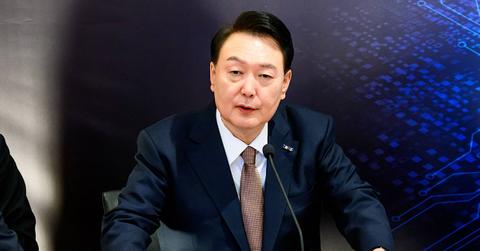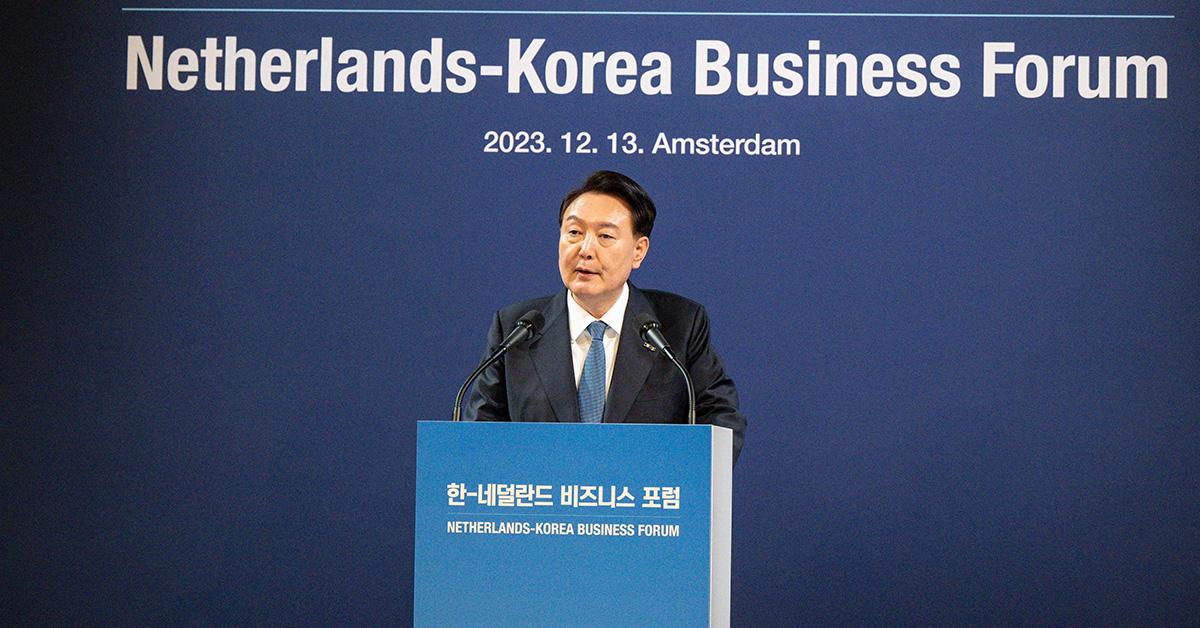South Korea's Declaration of Martial Law Sent the Country Into Upheaval
The move was justified by claims from the president that were not backed by evidence.
Published Dec. 4 2024, 10:57 a.m. ET

A power grab in South Korea on Dec. 3 included a brief period where the country's president, Yoon Suk Yeol, declared martial law. Martial law essentially means that the military is now in charge in place of the country's citizens. It is usually a temporary measure invoked during emergencies but can also be used as part of a power grab.
Given how quickly the country descended to chaos and seemed to emerge from it, many want to know more about exactly why martial law was declared in South Korea in the first place. Here's what we know.

Why did South Korea declare martial law?
The country's President Yoon Suk Yeol declared martial law in a speech late on Dec. 3, claiming that there were "anti-state" forces plotting a rebellion against the country. He also claimed that the country's opposition parties were in league with North Korea, the country's neighbor and rival. The president offered no evidence to support his claims, and made no concrete allegations against any individual.
Yoon has repeatedly claimed that a hard line against the North, in part because of that country's repeated threats of nuclear attack against the South. Until the 1980s, South Korea had a series of strongmen who regularly invoked the threat from North Korea in order to justify their own power grabs. Yoon has faced a series of corruption scandals, and has struggled to get his agenda through a parliament dominated by opposition parties.
Following his martial law declaration, politicians in both the opposition and his own party began to speak out against the move almost immediately, and he is now facing impeachment proceedings that will likely mean the end of his presidency.
“The people will block the president’s anti-constitutional step. The military must be on the side of the public in any case. Let’s resolutely oppose it,” Kim Dong Yeon, the opposition party governor of Gyeonggi province, which surrounds Seoul, wrote.
What does martial law mean in South Korea?
Martial law is a term that can be used in any country, but the South Korean constitution has a specific stipulation that allows the president to declare martial law in “wartime, war-like situations or other comparable national emergency states.”
Martial law can include suspending some civil freedoms like freedom of the press and assembly, and may also mean limiting the power of bodies like courts and agencies of the government.
While that may seem like an obvious avenue for the president to seize power, the constitution also allows the National Assembly to lift the declaration with a majority vote. Yoon's declaration may have gone even beyond what he is constitutionally allowed to do, and many also questioned whether the country really faces a threat similar to war.
Regardless of his exact motivations, though, it seems clear that South Korea's declaration is not going to last, and Yoon's political career may be over as a result. Martial law was short-lived in South Korea, and is a reminder of how much power resides with the public if they choose to exercise it.